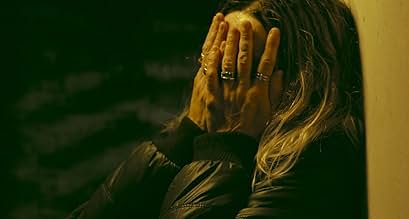Hundreds of migrants descend on the UK village of Great Yarmouth seeking work in the region's turkey processing plants.Hundreds of migrants descend on the UK village of Great Yarmouth seeking work in the region's turkey processing plants.Hundreds of migrants descend on the UK village of Great Yarmouth seeking work in the region's turkey processing plants.
- Awards
- 19 wins & 27 nominations
- Director
- Writers
- All cast & crew
- Production, box office & more at IMDbPro
Storyline
Did you know
- TriviaMartins had spent five years researching the immigrant communities in Great Yarmouth, drawing heavily from real experiences to shape the script. The film's stark aesthetic, with its decadent seafronts and haunting marshlands, paints the town almost as a character in itself. It juxtaposes decayed remnants of tourism with the harsh realities of exploitation, creating an environment where survival is both physical and emotional.
Featured review
Marco Martins, in exploring the turkey meat factories in England, delivers a film that seems more interested in recreating a stereotypical fantasy of industrial exploitation than in presenting an authentic or relevant perspective. The pacing is a central issue: slow, almost paralyzing, the film drags itself through a narrative that tries too hard to appear poetic but quickly becomes tedious and predictable. The lack of dynamism turns what could have been a sharp analysis into an exhausting exercise in patience.
The actors, though talented in other contexts, deliver performances that cross the line into excessive theatricality. Beatriz Batarda and Nuno Lopes, frequent collaborators of Martins, cannot escape an overblown portrayal that verges on caricature, undermining any attempt to build empathy or credibility. The director's decision to continually work with the same cast feels more like a crutch than a deliberate artistic choice, reflecting a complacency that overlooks the vast pool of talent in Portuguese cinema. It's as if Martins' creative universe were a closed club where only the usual members are allowed, at the expense of freshness and innovation.
Furthermore, the premise already feels outdated. The reality of factories in Europe has changed drastically in recent decades, with strict regulations and quality controls that make the depiction of workers as mere slaves seem artificial and even sensationalist. Of course, there are stories to be told about labor conditions in contemporary capitalism, but Martins opts for an antiquated and simplistic lens, weakening any social relevance the film might have had.
In the end, what remains is a work that attempts to say something important but fails to captivate, move, or educate. For a film that aims to be a wake-up call or an artistic reflection, it ends up sounding like an exhausting and outdated monologue, delivered by someone unwilling to step outside their own creative bubble.
The actors, though talented in other contexts, deliver performances that cross the line into excessive theatricality. Beatriz Batarda and Nuno Lopes, frequent collaborators of Martins, cannot escape an overblown portrayal that verges on caricature, undermining any attempt to build empathy or credibility. The director's decision to continually work with the same cast feels more like a crutch than a deliberate artistic choice, reflecting a complacency that overlooks the vast pool of talent in Portuguese cinema. It's as if Martins' creative universe were a closed club where only the usual members are allowed, at the expense of freshness and innovation.
Furthermore, the premise already feels outdated. The reality of factories in Europe has changed drastically in recent decades, with strict regulations and quality controls that make the depiction of workers as mere slaves seem artificial and even sensationalist. Of course, there are stories to be told about labor conditions in contemporary capitalism, but Martins opts for an antiquated and simplistic lens, weakening any social relevance the film might have had.
In the end, what remains is a work that attempts to say something important but fails to captivate, move, or educate. For a film that aims to be a wake-up call or an artistic reflection, it ends up sounding like an exhausting and outdated monologue, delivered by someone unwilling to step outside their own creative bubble.
- palma_rodrigo
- Nov 16, 2024
- Permalink
- How long is Great Yarmouth: Provisional Figures?Powered by Alexa
Details
- Release date
- Countries of origin
- Official site
- Languages
- Also known as
- Un automne à Great Yarmouth
- Filming locations
- Great Yarmouth, Norfolk, England, UK(on location)
- Production companies
- See more company credits at IMDbPro
Box office
- Gross worldwide
- $39,424
- Runtime1 hour 53 minutes
- Color
Contribute to this page
Suggest an edit or add missing content

Top Gap
By what name was Great Yarmouth: Provisional Figures (2022) officially released in Canada in English?
Answer






















